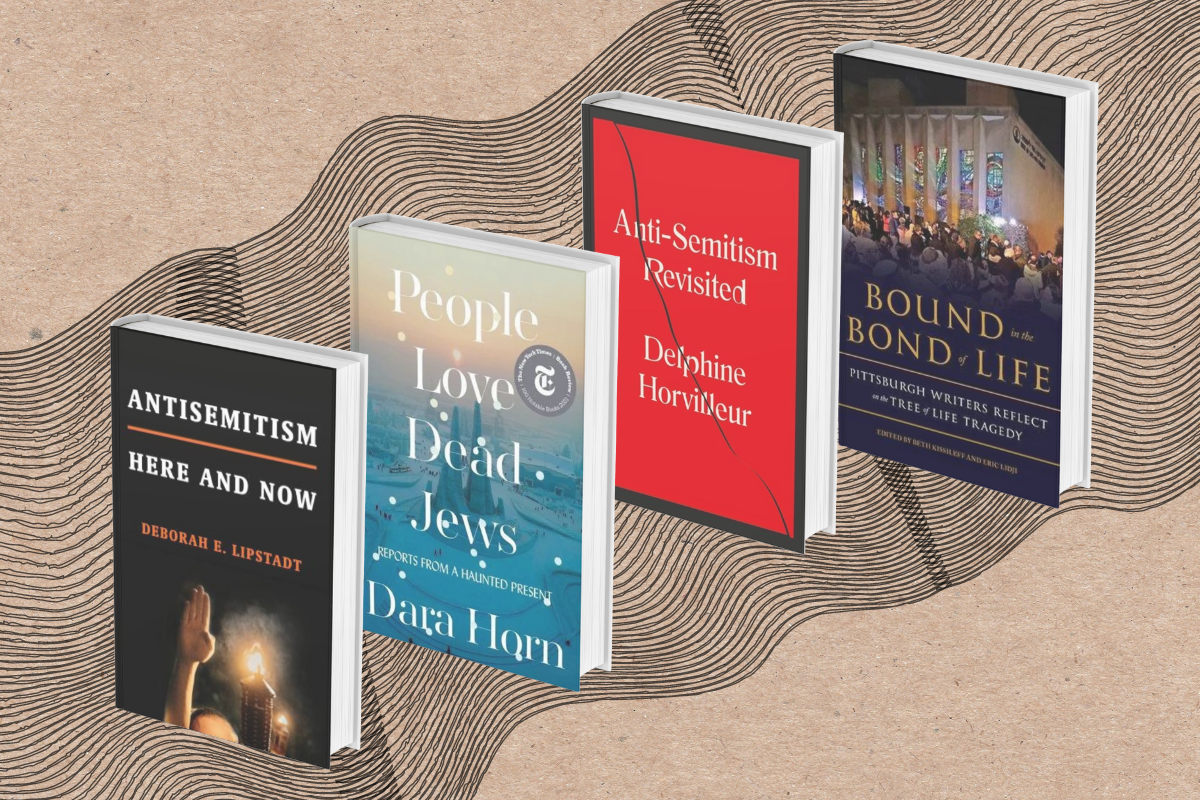Jews love to debate and argue, but there’s one point on which many of us can agree: Antisemitism sucks.
Though the pseudo-scientific term “antisemitism” originated in Germany in the 1800s, hatred of Jews is far older. A quick sample of antisemitic ideas and their manifestations in the last 2000 years: the misbelief that Jews killed Jesus (see: Catholic Church Doctrine), that Jews express dual loyalty (see: Dreyfus Affair) and that Jews control the world (see: Protocols of the Elders of Zion).
Yet antisemitism is not an ideology relegated to the past; the recent behavior of Kanye West is one prominent example. Whenever antisemitism and its manifestations make the news (again), Jews, as well as allies, often try to educate others about antisemitism — what it was, what it is, and its continued impact on Jewish lives.
It can be difficult to know where to start these conversations. Academic explanations can provide an overview of the history of antisemitism and highlight both individual antisemites and antisemitic attacks on Jews — but they can feel distant or lack urgency. If these academic answers are the “theory” of antisemitism, stories of familial and personal encounters with antisemitism are the “practice.” Sharing these experiences might move more people to act against antisemitism and help them understand how it impacts Jewish lives.
However, these personal stories often leave Jews exhausted and asking themselves: Do I continue sharing personal information about myself and my family again and again to people who might not be listening? Do I owe it to others to share my story, or do I owe it to myself to protect my sanity (and potentially safety) by not sharing personal information?
There is no one answer to those questions. What I do know is that antisemitism is too broad a topic for any one Jew to be an authority on (perhaps Deborah Lipstadt excluded).
If you want to educate yourself more on antisemitism or offer educational resources to others, here is a far from comprehensive resource guide to better understanding antisemitism.
Books
“Antisemitism Here and Now” by Deborah Lipstadt
Professor and Special Envoy to Monitor and Combat Antisemitism Deborah Lipstadt is one of the most influential historians studying antisemitism, the Holocaust and genocide today. Her 2019 book is a thorough yet accessible overview of contemporary and recent antisemitism in the United States. A focus is given to the similarities and differences across various manifestations of antisemitism, both on the left and the right.
“People Love Dead Jews: Response from a Haunted Present” by Dara Horn
Dara Horn’s essay collection focuses on antisemitism, but it’s also about why the non-Jewish world is more fascinated by dead Jews, often killed because of antisemitism, than living ones. The book is a great read, and there’s also a related podcast series.
“Anti-Semitism Revisited: How the Rabbis Made Sense of Hatred” by Delphine Horvilleur
The first rabbi to be mentioned here, Delphine Horvilleur’s book examines antisemitism through a Jewish textual lens, rather than a strictly historic one. The Jewish canon is much more than a reaction to antisemitism. However, understanding how the rabbis of the Talmud dealt with antisemitism is a helpful reminder that the fight against it is ancient — and that we have tools to make sense of it.
“Bound in the Bond of Life: Pittsburgh Writers Reflect on the Tree of Life Tragedy” edited by Beth Kissileff and Eric S. Lidji
This essay collection was written in response to the October 27th, 2018 attack on the Tree of Life congregants in Pittsburgh, Pennsylvania. The essays included capture the thoughts and experiences of those touched, both closely and more distantly, by that deadly antisemitic attack. The variety of voices reminds us that though antisemitic violence impacts the victims and survivors first and foremost, there are rings of people beyond them who feel its effects.
Online Offerings
United States Holocaust Memorial Museum
The United States Holocaust Memorial Museum is known for focusing on Holocaust education. Many people don’t realize that they emphasize education around two specific aspects of the Holocaust: genocide and antisemitism. Their website has many great resources for learning about antisemitism. Two places to begin are: 1) this video on the History of Antisemitism and 2) a series of articles breaking down antisemitism from the Holocaust Encyclopedia.
Series on Antisemitism & Bigotry from My Jewish Learning
My Jewish Learning is an outlet that covers so many facets of Judaism and the Jewish experience. For better or worse, that extends to teaching about antisemitism. Their series of posts about Antisemitism and Bigotry is mostly historical, though it includes some more contemporary events. It excels in breaking up facets of antisemitism in specific, easy to locate and read articles. “Anti-Semitism 101” is a detailed article to start with.
A Very Brief Guide to Antisemitism from T’ruah
Published in January 2022, T’ruah’s guide to antisemitism is both thorough and concise, an impressive feat in a field dominated by scholarly offerings. Available online as a PDF as well as by mail as a physical booklet, the guide breaks down the history of antisemitism, addresses antisemitism as it relates to Israel and, notably, offers helpful guidelines for responding to antisemitism.
‘I never forgot and I never again felt safe’ – readers share the most antisemitic thing that happened to them from the Forward
After editor-in-chief of the Forward Jodi Rudoren wrote a column about the most antisemitic thing she had experienced, she invited readers to share their experiences with the paper. The result was a collection of stories about personal experiences with antisemitism. If you want to educate others, particularly non-Jews, about how antisemitism impacts the lives of Jews, but don’t necessarily want to share your own experiences, this is a great resource to share.



